QuestionI have had a box turtle that we found in our yard that was nowhere near any woods and we did not want to run it over with the lawn mower. It was only the size of a quarter. That was about 14 years ago. Last week I had a little baby girl and my sister in law called and said we had to get rid of the turtle because an 4 month old infant near her has sepsis and they attribute it to the turtle they had in their house. I have given my turtle to my dad until I can find out if a few friends who work for some parks and nature centers to see if they can take my little friend. Do you know is there anything I need to do to clean my house to help my husband feel safer about the possible salmonella or sepsis in my home?
AnswerTry these CDC articles:
http://www.cdc.gov/Features/ReptilesSalmonella/
http://www.cdc.gov/healthypets/spotlight_an_turtles.htm
http://www.cdc.gov/mmwr/preview/mmwrhtml/mm5626a1.htm
Now- the articles look kinda scary, but understand a few things...
1.) Only 6% (11% in under 21 years old) of all Salmonella cases are from reptiles. Most are from fecal contamination and mis-handled food in the home, with room temperature chicken, meat, and eggs being the highest risks. When you read the articles, look at how FEW infections there are in the US in a year, compared to how big the US is.
2.) No known case of Salmonella has been reported from Box Turtles or Tortoises. Aquatic turtles live in their own wastes if they are not properly cared for
, and most of the people who get Salmonella from reptiles are young kids handling the animals without handwashing.
3.) Proper handwashing after handling ANY pet is a smart thing to do and prevents something like 97% of the chance of an infection. Even pet dogs and cats carry infection risks (http://www.cdc.gov/healthypets/)
4.) Besides basic handwashing, the other big trick in reducing Salmonella is to just keep the habitat and food clean. Remove fecal materials (wash hands after), feed uncontaminated foods, and if the turtle is walking around, wipe up after him.
5.) Trying to put a long-term captive turtle back in the wild or even a semi-wild area is dangerous for the turtle and other wild turtles. First, it has a low survival rate, secondly, it has a really good chance of infecting wild turtles with diseases it picked up from you that it is semi-immune to. It is also illegal to release animals into the wild (even parks) in most places nowadays.
6.) A lot of stuff about Salmonella and most other germs is really a form of fear-mongering. Salmonella is only dangerous in rare cases- and then mostly due to dehydration or complications. Salmonella itself in most people is 'the 24 hour bug' or 'stomach flu'. You've had Salmonella several times in your life almost certainly.
Without trying to alarm you, your child is at higher risk from cats, SIDS, contaminated formulas, etc.
Certainly- use basic precautions when handling the turtle- wash hands, don't let it run loose in the house, etc.- but there is no reason to get rid of it when it is an old friend.

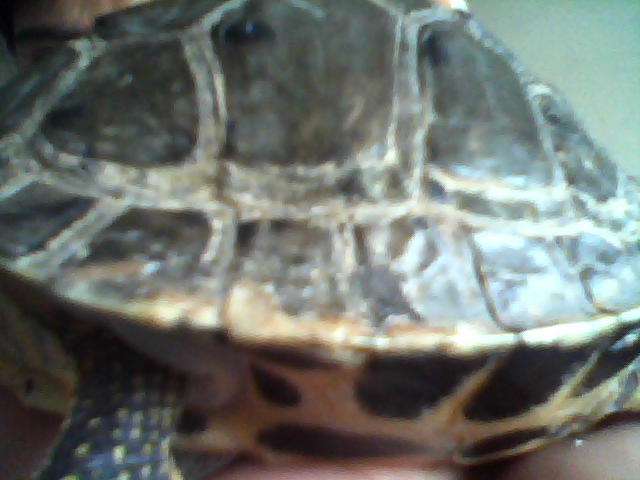 about diet and exact environment which i should create for her
Question
shell
I have a female turtle,jingo.i dont kno
about diet and exact environment which i should create for her
Question
shell
I have a female turtle,jingo.i dont kno
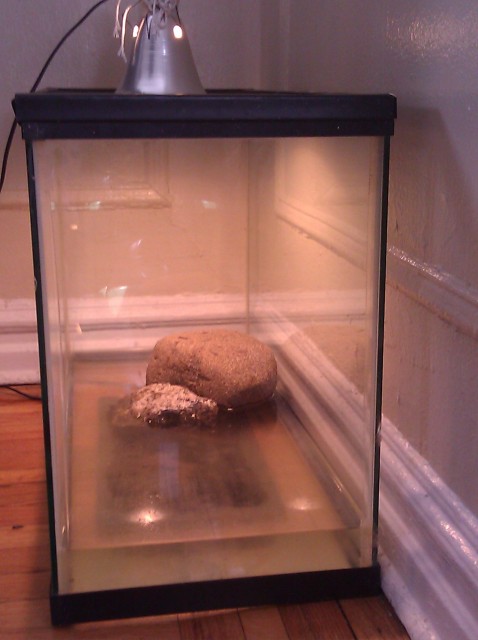 they are so diffrent
Question
the habitat
I have 2 baby red eard sliders and
they are so diffrent
Question
the habitat
I have 2 baby red eard sliders and
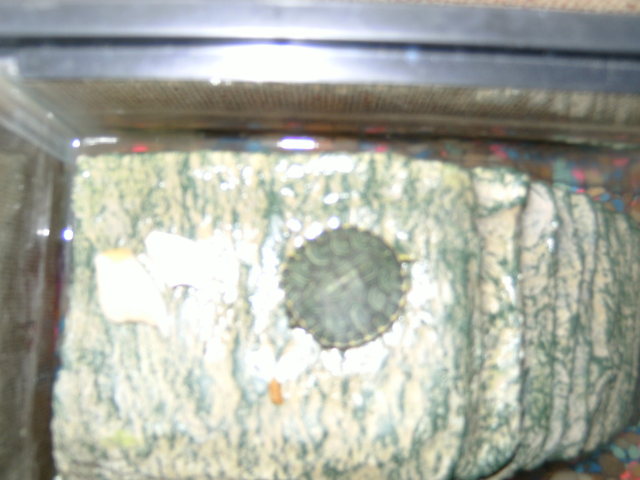 Baby Yellow Belly Turtle
Question
My baby
I have a baby yellow belly turle no bi
Baby Yellow Belly Turtle
Question
My baby
I have a baby yellow belly turle no bi
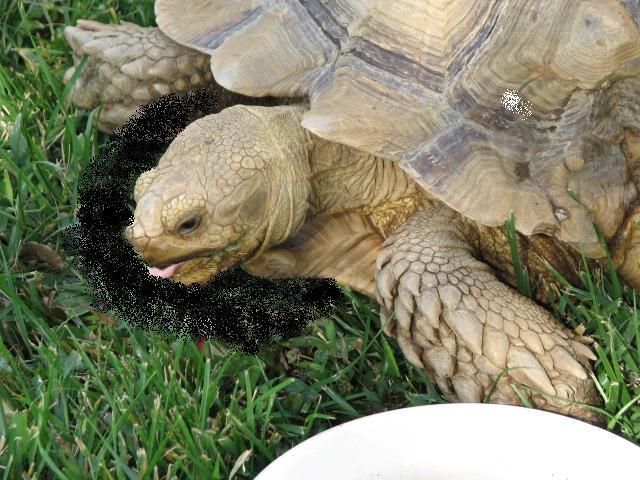 African Succata has Acrylic Paint on back
Question
Tim
Please help! Acrylic Paint on Tim the Turt
African Succata has Acrylic Paint on back
Question
Tim
Please help! Acrylic Paint on Tim the Turt
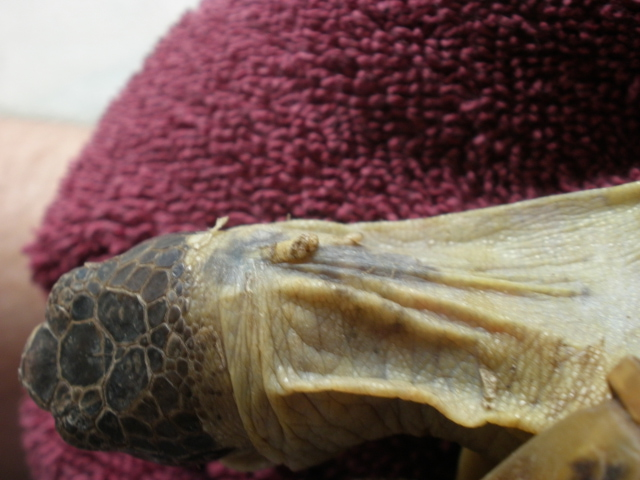 Russian Tortoise neck discoloration
Question
Neck 1 Neck 2
I have a Russian to
Russian Tortoise neck discoloration
Question
Neck 1 Neck 2
I have a Russian to